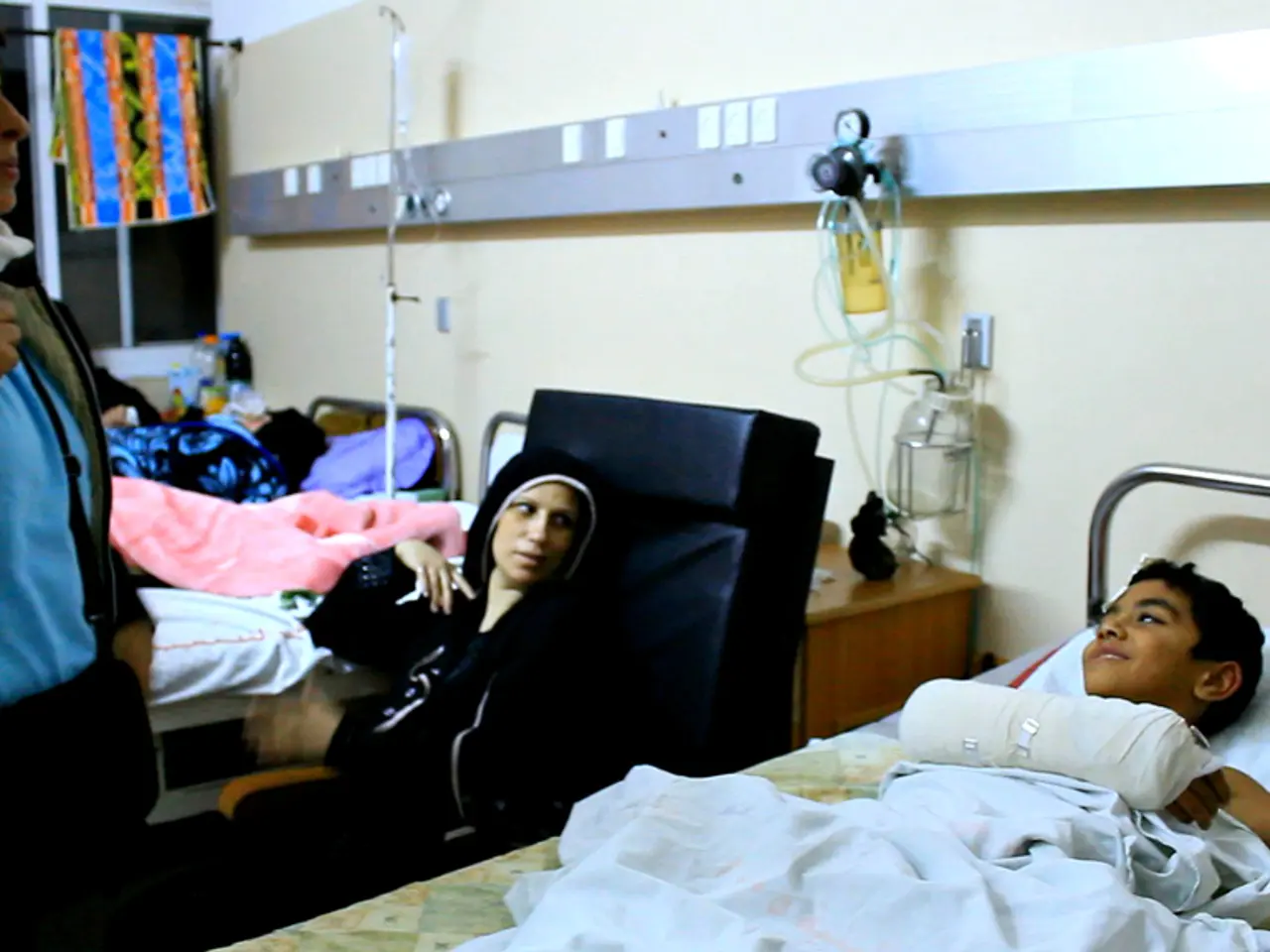Additional Physician in Freiburg
In the picturesque town of Fraunberg, Germany, a significant change is on the horizon. The town, known for its rich history and vibrant community, is set to implement a novel approach to healthcare – a hybrid care model called Better Clinics.
This innovative solution, developed by an experienced physician, aims to counteract the shortage of general practitioners in rural areas like Fraunberg. The model combines on-site care with telemedicine, offering residents the best of both worlds.
The community center in Fraunberg will undergo renovation, funded by the state, to accommodate the Better Clinics concept for treatments. The renovated spaces will be equipped according to the Better Clinics standards, ensuring a modern, team-oriented medical system that focuses on maintaining a reliable doctor-patient relationship.
Doctors will be present for at least 25 hours per week at the Better Clinics location, ensuring personalised care. Telemedical consultations will also be possible, with competent staff always present to assist.
However, it's worth noting that the health insurance companies have yet to give their approval for the Better Clinics implementation. All permits for the establishment of the medical station are not yet in place.
The introduction of Better Clinics is scheduled for the fall, marking a potential solution for the issue of a shortage of general practitioners in rural areas. While specific details about the impact of Better Clinics in Fraunberg and neighbouring Erding are not yet available, the hybrid care model aligns with broader telehealth trends in Germany.
In Germany, the healthcare system is a regulated multi-payer system with universal coverage. Hybrid care models like Better Clinics must comply with these frameworks and the statutory health insurance structure. The adoption of hybrid care in Germany is increasing to address challenges like provider shortages in rural areas, with regulatory adaptations fostering telemedicine integration to improve accessibility without compromising care quality.
Mayor of Fraunberg, Hans Wiesmaier (CSU), announced the plan in a town council meeting, expressing optimism about the potential benefits for the community. The hybrid care model could mitigate healthcare shortages by improving access to general practitioners and specialists via telehealth, reducing travel burdens for patients, and optimising limited local healthcare resources.
As the implementation of Better Clinics in Fraunberg approaches, the community eagerly awaits the benefits this innovative approach to healthcare may bring. The promise of improved access to medical care, shorter wait times, and better chronic disease management is a beacon of hope for residents of this beautiful rural town.
[1] Telehealth and hybrid care models in addressing rural healthcare shortages: A systematic review. Journal of Medical Internet Research (2020). [2] Telemedicine in Germany: Current status, challenges, and perspectives. Deutsches Ärzteblatt International (2019).
- The hybrid care model, Better Clinics, being implemented in Fraunberg, Germany, aims to integrate science and technology, such as telemedicine, into traditional health-and-wellness practices, with a focus on mental health, fitness-and-exercise, and nutrition, to counteract the shortage of general practitioners in rural areas.
- In line with broader telehealth trends in Germany, Better Clinics' approach aligns with the nation's regulated multi-payer system, ensuring universal coverage while addressing challenges like provider shortages, improving access, and optimising resources for rural areas like Fraunberg.
- The incorporation of Better Clinics' telehealth and hybrid care model in Fraunberg could potentially revolutionize nutrition education and mental health services, paving the way for a more integrated, personalized, and accessible health care system in the town and neighbouring Erding.







